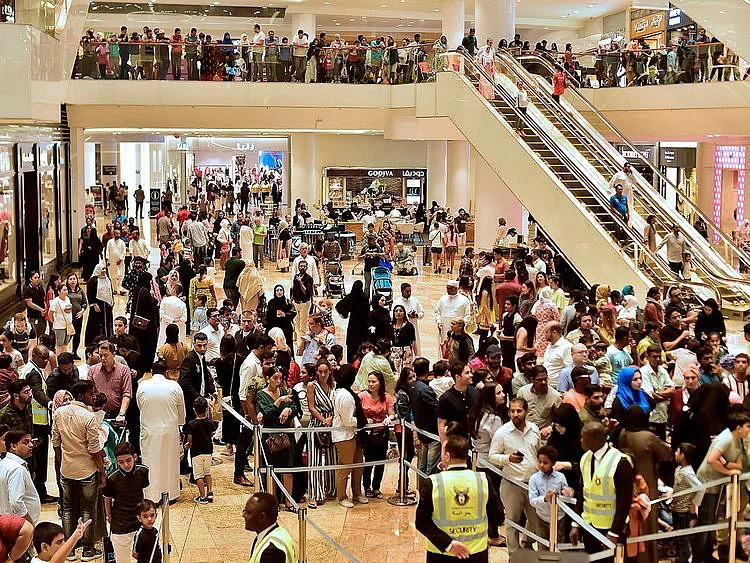Eid plans in a pandemic
UAE residents tell GN Focus how the coronavirus has changed the way they celebrate

Highlight
From dressing up on Zoom to socially-distanced lunches and sacrifice apps, UAE residents tell GN Focus how the coronavirus has changed the way they celebrate
For Muslims, Eid Al Ahda tends to be a celebration full of family, friends and feasting on red meat. However, seven months into the pandemic, people in the UAE and worldwide have been forced to rethink and rejig their traditional means of marking the occasion.
Eid norms
For Faiza Shamim, a Canadian influencer based in Dubai, Eid tends to be a multicultural affair — something reflective of her family background. “My husband is Lebanese-American and I am Pakistani-Canadian. Normally our Eids are spent in one of these countries celebrating with either side of the family. No matter the country, time zone or family we are with, our Eids are celebrated full of family visits, overeating and laughter.”
Family is a common Eid theme uniting UAE residents, particularly when it comes to the first day of the occasion. Yasir Yahya, an Emirati call centre manager working with a major UAE airline, is another resident who subscribes to this. “My siblings and father spend the morning visiting our relatives’ homes to wish them Eid Mubarak. We do 15-20 sit-downs in each house, usually bumping into cousins, aunts and uncles who are all doing the same thing. By lunchtime we gather at my grandfather’s house to enjoy Eid lunch together, usually biryani.”
Aside from family and dressing up, food is at the forefront of many people’s minds. HR manager Uzair Bhamji is no exception. Hosting and attending dinners and lunches with friends is a pretty big deal. “I always call up my mum and ask her for our family Eid kebab recipe and cook it,” says the Pakistani, who spent his childhood between Dubai and Karachi. “When Eid was in winter, barbecues were mandatory. Isn’t that what Eid is about?”
Tech vs tradition
One coronavirus consequence has been the virtual hosting of major events, particularly over Zoom. “Not only has it changed the way we celebrate big events such as birthdays and weddings, but every religious function and occasion has also now moved to Zoom,” explains Sakina Feroz Vajihi, an Indian PR account manager. Interestingly, she feels that the rise of the videoconferencing platform has actually helped bring families together, especially when compared with a conventional — and impersonal — forwarded WhatsApp message. “I’m actually grateful and I intend to keep this tradition going. Now, everyone is going to dress up and get on Zoom... it’s the best way to catch up.”
Beyond Zoom, technology has brought an interesting twist to a religious festival associated with the willingness to sacrifice. “We will be performing the goat or cow sacrifice using one of the apps recently launched in the UAE, rather than taking a trip to the market and slaughterhouse in Qusais,” says Bhamji.
Safety first
However, in light of Covid-19, 2020 won’t be quite the same for these residents. “There will be limits on the number of people attending any one event, so we can maintain social distancing. I’m guessing there will be a lot more friends around [Dubai] this year, since no one will be travelling to their home country.”
Yahya says, “We won’t be visiting our extended family this time around. I’ll probably end up wishing my grandparents through Zoom or by telephone. It’ll be a small gathering with my parents and siblings only. I’m definitely going to wear a mask and carry sanitiser with me all day.” In lieu of visiting many houses, Yahya will be limiting contact to immediate family. “I’ll be playing Ladees [a card game similar to trumps] with my siblings, as well as video games at home.”
Shamim and her family will be doing the Eid prayer at home this year, though this is something they usually practice anyway when they aren’t home in Toronto. “This summer we got Privilee memberships, so we’ll enjoy the day with a family swim and Eid brunch, appreciating the fact that we have our health.”
Vajihi will also be praying at home. “[Throughout the pandemic], my family and I haven’t really left the house except for essentials. During this time, we used to gather in the mosque, but we won’t be visiting our friends, cousins and extended family this year. We will be couriering some gifts to them via reliable sources. That way we get to celebrate in a safer environment.”
For some residents, traditions change by generation. Shamim, for instance, grew up receiving Eidiyah (a cash gift) from her father. “When my husband and I got married, we decided to start a new tradition: We buy each other toys that we loved as children. On our first Eid together, I got him a really cool Lego set and he got me a set of Teenage Mutant Ninja Turtles — Donatello was my favourite.
“This year I want a Tamagochi, while he wants something Ghostbusters. We also have a five-year-old, who always gets something Super Mario-related.”
Sign up for the Daily Briefing
Get the latest news and updates straight to your inbox
Network Links
GN StoreDownload our app
© Al Nisr Publishing LLC 2026. All rights reserved.